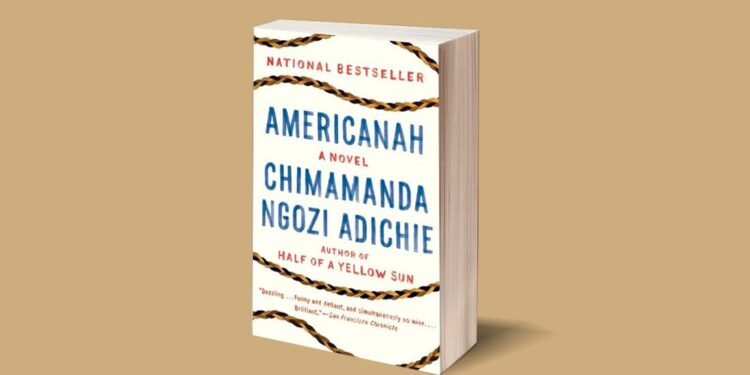Chimamanda Ngozi Adichie, born in Enugu, Nigeria, in 1977, is a novelist, short story writer, and essayist who has emerged as one of the most prominent contemporary global literary voices. Her literary work explores the nuances of African and Nigerian identity, postcolonial issues, transatlantic migration, and the dynamics of gender and race. Through precise English and a coherent narrative, Adichie has bridged the gap between African literature and Western audiences, earning her critical and popular recognition and prestigious literary awards.
Adichie grew up in the university town of Nsukka, Enugu State, Nigeria, in a house that was once the residence of the late Nigerian writer Chinua Achebe. Her father was a professor of statistics, and her mother was the first registrar (administrative director) of the University of Nigeria, providing her with an academic environment. Her Igbo Nigerian heritage profoundly influenced her themes, particularly regarding the Biafra War (1967-1970), during which her family suffered significant losses.
Adichie began her undergraduate studies in medicine and pharmacy in Nigeria but left after a year and a half to move to the United States at the age of nineteen in 1996 on a scholarship. She completed her BA in communication and political science at Eastern Connecticut University, followed by an MA in creative writing from Johns Hopkins University and an MA in Africana Studies from Yale University. This interdisciplinary educational path, coupled with her experience as a “translating subject” between Nigeria and the United States, provides a foundation for understanding the complexities of her writing.
Adichie’s works are characterized by their focus on subtle details that reflect the conflict between tradition and modernity and the struggle for identity in diverse geographical and cultural contexts. She has published several novels and short story collections that have had a significant impact on the literary scene.
Her debut novel, which won the Commonwealth Book Award for Best First Book, is a dramatic exploration of religious, familial, and political oppression in post-colonial Nigeria. The story centers on a girl named Kambili and her privileged family, who live under the control of a fanatical and authoritarian religious father who practices violence in the name of the Catholic faith. The novel addresses issues of silence and fear and how domestic violence can reflect the broader corruption and political oppression in the country, highlighting the fragility of the social and familial system in modern Nigeria.
This novel, which won the Orange Prize for Literature, is Adichie’s most ambitious work, examining the Nigerian Civil War (the Biafra War) from 1967 to 1970. The story is told through the eyes of three main characters: Ugwu, a village boy who works as a domestic servant; Olanna, a twin daughter from a wealthy family who abandoned her luxurious life to live with her lover, a revolutionary university professor; and Richard, an expatriate English writer who is in a relationship with Olanna’s twin sister, Kaineni. Adichie succeeds in removing the war from the realm of political aridity and ideological coldness, telling it from human and emotional perspectives. She does not offer a purely historical analysis but rather maps ethnic (Igbo) loyalties, class, and the impact of violence and famine on personal relationships and the concept of moral responsibility. The novel is an artistic revival of this important historical period and a reminder of the outside world’s indifference to this tragedy.
Winning the National Book Critics Circle Award, Americanah is a contemporary exploration of race, immigration, and transnational identity. It revolves around the love story of Ifemolu and Wafu, two Nigerian lovers who migrate to the West. Ifemolu goes to the United States and encounters the complexities of the concept of “blackness” in the American context, while Wafu goes to Britain. The novel features a conceptual treatment of the “non-African race,” as Ifemolu discovers that in America she must learn to be “black” in a way she could not in Nigeria, where tribal affiliation was the dominant characteristic. The novel also critiques the monolithic Western narrative about Africa and brilliantly addresses the cultural gap between African immigrants and African Americans.
Beyond the novel, Adichie has established herself as an important feminist voice, particularly through her widely read speeches and essays.
In her famous TED talk “The Danger of a Single Story” (2009), Adichie discussed the idea of a ”single story,” arguing that focusing on a single narrative about a particular culture or people (such as portraying Africa solely as a medium of poverty and disaster) leads to misunderstandings and misleading simplifications. She emphasized that single stories “rob people of their dignity” and create incomplete stereotypes. This discourse is, at its core, a defense of human complexity and narrative diversity, something she attempts to apply in her interwoven novels.
“We Should All Be Feminists” (2012), Adichie’s lecture that was turned into a booklet and achieved unprecedented popularity. It was even included in high school curricula in Sweden and was quoted in a song by American singer Beyoncé. Adichie argues that the problem with gender discrimination is that it “prescribes how we should be, rather than how we truly are.” The author advocates for viewing feminism as a natural part of the concept of human rights and equality and rejects the notion that “gender roles” are a biological imperative rather than a social construct.
In her book “Dear Ijeawele, or A Feminist Manifesto in Fifteen Suggestions” (2017), written in the form of a letter to a childhood friend, she offers 15 tips for raising her daughter as a feminist. The book addresses practical details of everyday life, such as rejecting the notion of “being a girl” as a reason for imposing restrictions and encouraging girls to develop skills like cooking (which she views as a life skill for everyone, not a gender duty). This work reflects Adichie’s attempt to transform feminist thought from theory to everyday practice in the Nigerian and African context.
Despite her critical and popular success, Adichie has not escaped criticism. Some critics, particularly in reviews of her more recent works such as “Dream Count,” argue that her apparent shift to activist and social critic can sometimes undermine the depth of artistic complexity that characterized her earlier novels. Debates have also been raised about how she represents certain groups in her works and about the extent to which a single voice can represent the entire African experience. However, her insistence on the Igbo experience remains an original contribution rather than an attempt to universalize it.



























































